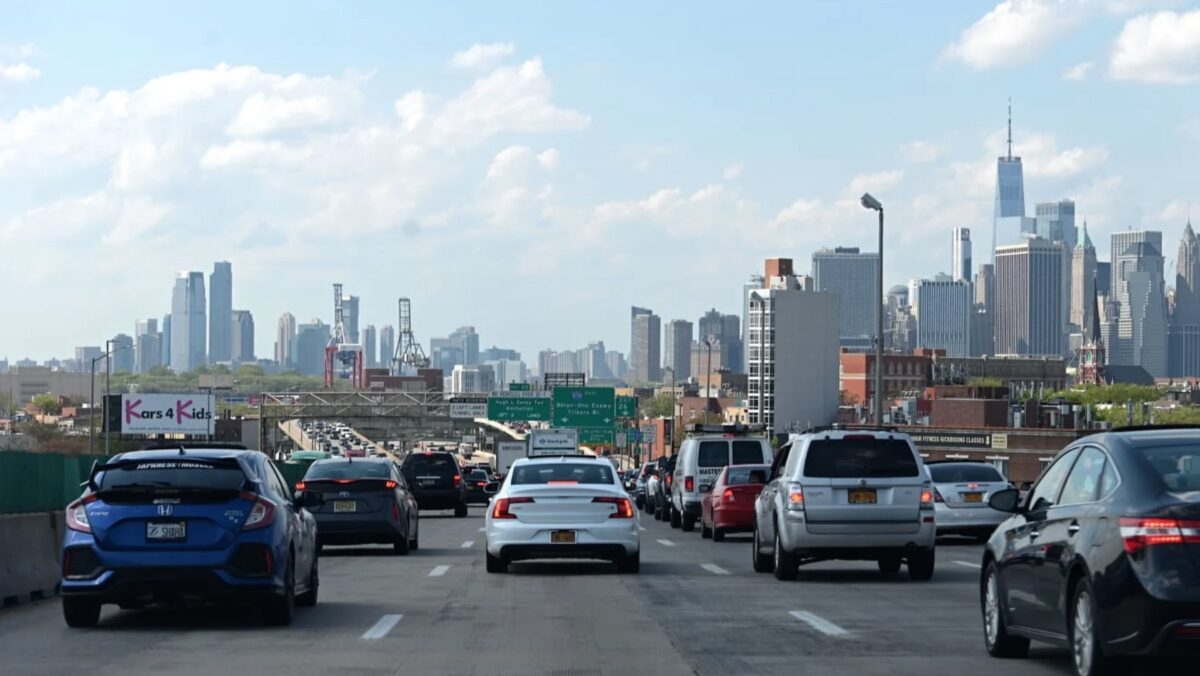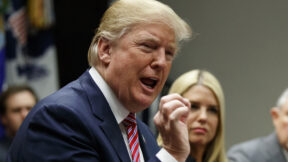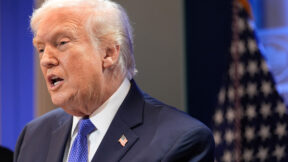Infrastructure Bill Could Require Auto Manufacturers to Install Breathalyzers in Future Cars

Johannes Eisele/Getty
Auto manufacturers will be required to install breathalyzers or other anti-drunk driving technology in all new vehicles beginning within the next decade under the terms of the 2,700-page infrastructure bill making its way through Congress.
Vehicles would be required to include systems “passively and accurately detect whether the blood alcohol concentration of a driver of a motor vehicle is equal to or greater than the blood alcohol concentration” of .08, according to the legislation. The systems would include cameras to monitor head and eye movement, and would be required to “prevent or limit vehicle operation” users failed the test.
The law would direct the secretary of transportation to develop the rule within three years from its date of passage, with the option of extending the deadline for implementation by another three years to develop workable systems. Vehicle manufacturers would have between two to three years to comply from the date of the rule’s enactment, meaning implementation would take effect sometime between 2024 and 2030.
The measure falls in a section title “Advanced Impaired Driving Technology,” and is included in a $78 billion surface transportation portion of the larger $1 trillion infrastructure package. Sens. Sen. Gary Peters (D-MI), Tom Udall (D-NM), and Rep. Debbie Dingell (D-MI) are championing the clause from the Democratic side of the aisle, alongside Republicans including Sen. Rick Scott (FL) and Rep. David McKinley (WV).
Dingell has been pushing for the measure since 2019 successfully won passage for it in the House of Representatives in July as part of a vote on a $715 billion infrastructure bill.
“We have the important technology to prevent drunk driving and save lives,” Dingell said in a statement. “It’s long past time we use it.”
In addition to Dingell’s advocacy, lobbyists have spent big to win the measure. Mothers Against Drunk Driving spent $40,000 to lobbying Congress in 2021 alone, according to data located by the Washington Free Beacon. Intoxalock, a company that manufactures breathalyzers, paid lobbyists another $900,000 between 2017 and 2021.
New: The Mediaite One-Sheet "Newsletter of Newsletters"
Your daily summary and analysis of what the many, many media newsletters are saying and reporting. Subscribe now!






Comments
↓ Scroll down for comments ↓